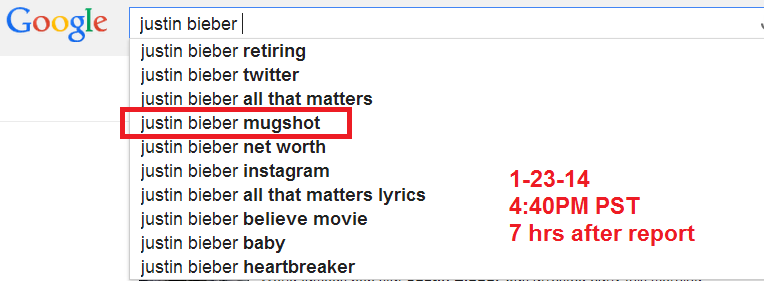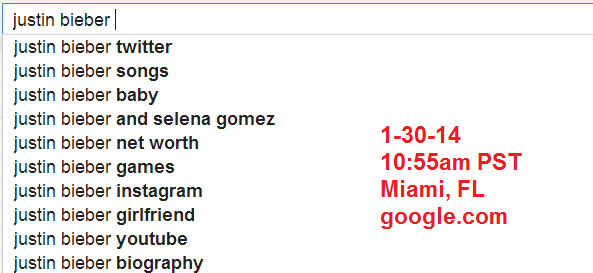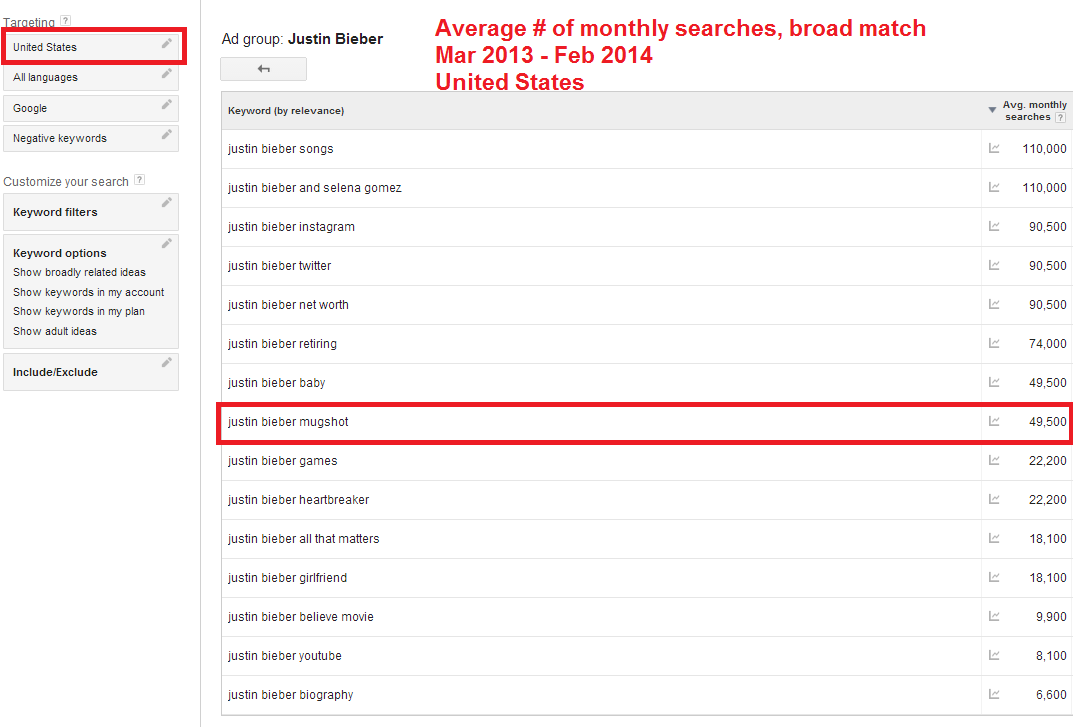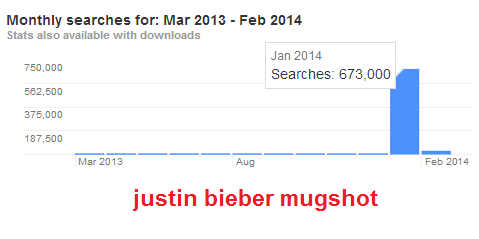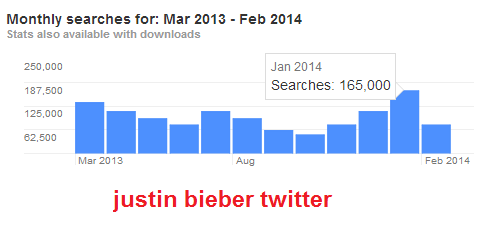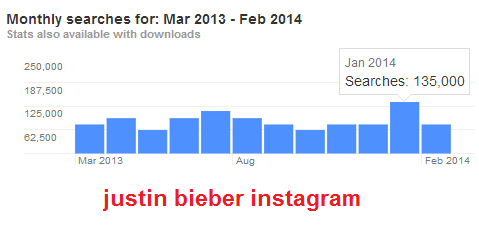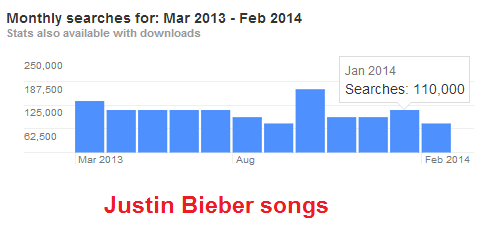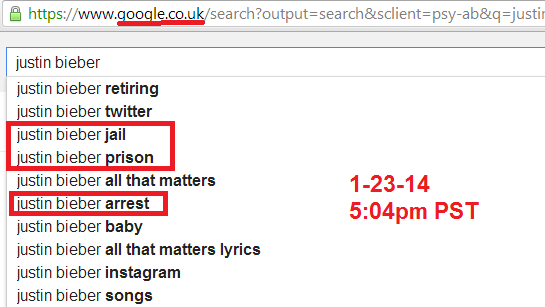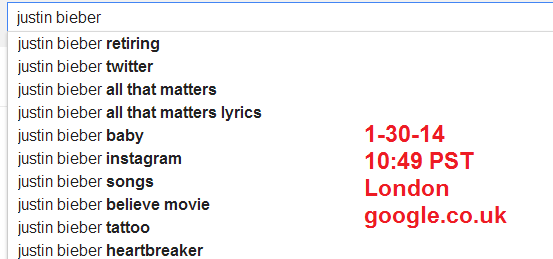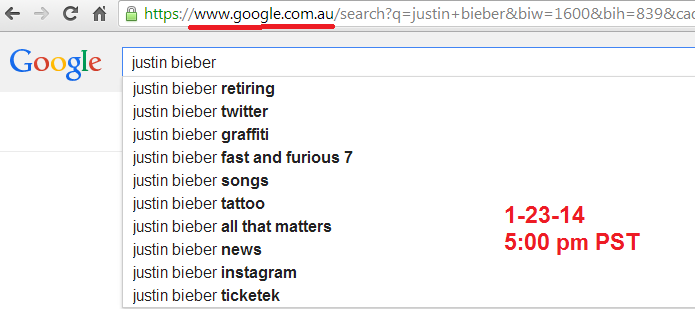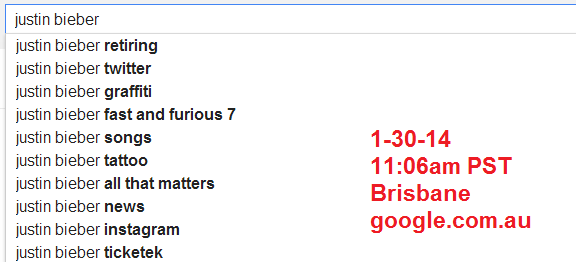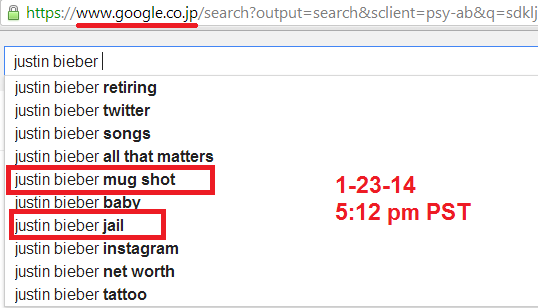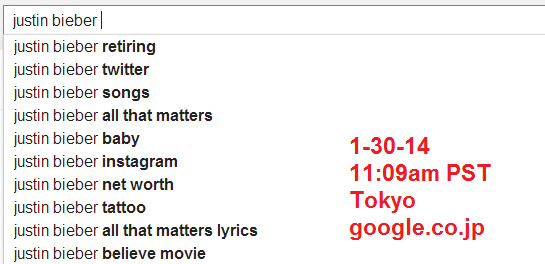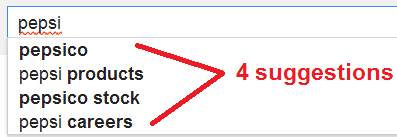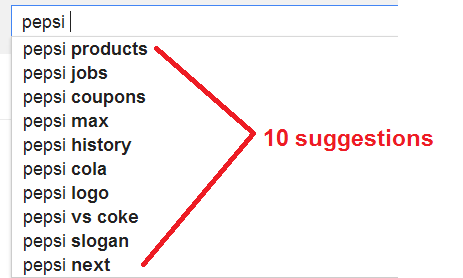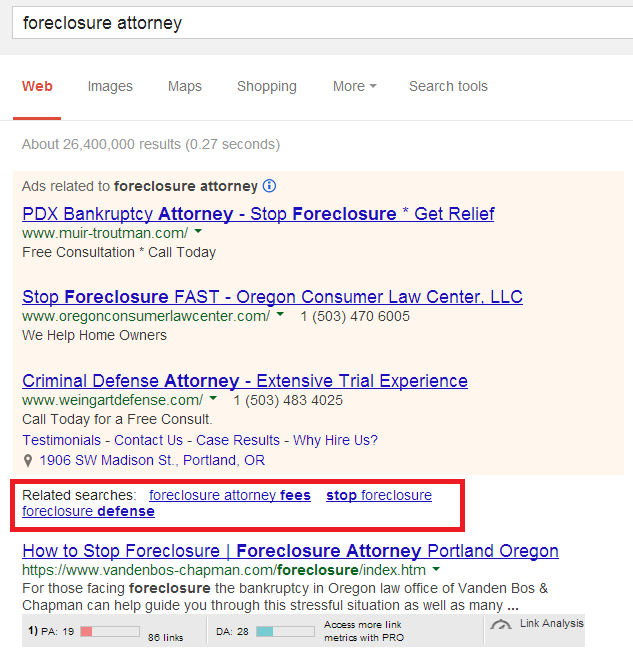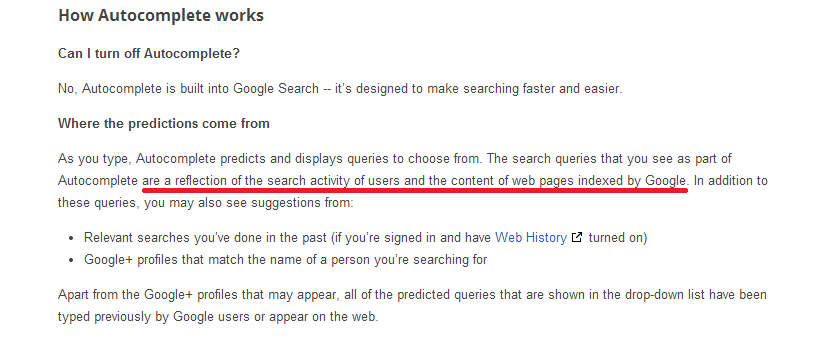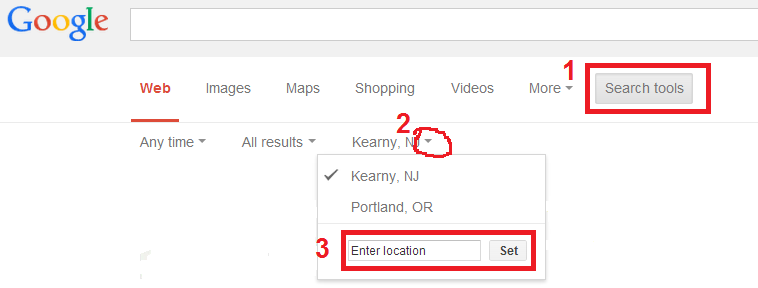We were recently asked by a real estate agent to append his name to a local keyword he believed would help steer search engine traffic to his website. The realtor works in the Vancouver, BC market, so the keyword he wanted us to append was:
- Vancouver real estate [local search volume 3,600/month]
In this post, I’m going to explore the strategy, costs, and possible ROI of undertaking this real estate autocomplete marketing campaign.
Research Of Search Volume Needed
Before we get to the strategy, let’s take a look at what we need to accomplish.
Below are the suggestions I see when Googling “vancouver real estate” with my location set to Vancouver, BC.
As you can see, the top 4 suggestions have an average monthly search volume of between 210 and 480 according to Google’s keyword planner. This volume is from people in Vancouver, BC only.
So, to compete with these terms, you’re going to need a minimum search volume of about 350 per month to have a shot of having your name appear as a suggestion. What’s more, these 350 searches need to come from people located in Vancouver, BC with Vancouver, BC IP addresses, in order for it to show to people who are searching in that city.
If you’re able to achieve that local search volume, it’s certainly not guaranteed your name will appear in autocomplete because suggestions don’t appear in the order of highest volume.
Now, you might be thinking, “Why can’t I just have people all over the world searching this term? Why do they have to be in Vancouver?”
The answer is yes, of course, you could not worry about targeting Vancouverites with your search activity and you’d probably be successful in having your name appear in other cities, but NOT in Vancouver, which is where you want it to appear. For best results and to get the term to appear to potential clients in your city, you’re going to need to geo-target where your searches are being performed.
Local Google Autocomplete Strategy
Let’s move on to the strategy. The mission is:
Get 350 different people living in Vancouver, BC to search the keyword, “vancouver real estate firstname lastname.”
How are we going to target these people? What will their motivation be to perform the search and do it successfully so Google recognizes it as a completed search?
Here are some methods for targeting Vancouverites to complete the task of searching this keyword:
1) Run “gig” ads on Craigslist every day. I’ve done this. Some ads get flagged and removed. You’ll likely need to pay people $5 to complete the task. Direct them to a contact form on a website where they have to perform the search then answer certain questions to confirm they performed the search. Check for accuracy. Collect their email address and pay them via paypal – one at a time.
2) Use Crowdsourced sites. I haven’t seen a single crowdsourcing site that lets you geo-target workers. Microworkers lets you target by state, but volume is extremely limited. Mechanical Turk doesn’t have any geo-targeting. Crowdflower has state level targeting but you have to pay a huge monthly fee ($2,500) to use their service for this sort of task.
3) Use Facebook ads to get people to click a link for “vancouver real estate firstname lastname.” I’ve not tried this and am not sure FB would allow it.
4) Run cable TV ads that say, find us on Google by typing “vancouver real estate firstname lastname.” You could use direct mail to do the same thing.
5) Use proxies. Yes, you could try doing it with proxies, but that is extremely unreliable. Google’s gotten pretty good at blacklisting IPs it feels are suspicious. The best strategy is to get REAL PEOPLE making the searches for you, one at a time, completely at random.
6) Email Marketing. Start by importing all your contacts into Constant Contact and send them a newsletter with news and ask them to perform the search task for you. You won’t have to pay these people. As we recruit new people to do this, I’d create a 2nd email list and send them a monthly reminder to perform the task again to earn another $5.
I’m sure there are other clever methods for getting people to perform the search, but I think you get the idea.
Costs
To run this campaign, you’re going to have the following estimated hard costs:
- $5 per CL search X 350 searches per month = $1,750
- $150/ month for VA to place multiple CL ads per day, every day on CL
- $1,000 monthly ad budget (Facebook, other possible sites)
This estimate does not include management fees (paid to someone like me) for writing ads, setting up splash pages, managing the applicants, checking their work and paying the people who completed it successfully. It’s a lot of work and takes a lot of time. I’d charge $2,000/ month to run this campaign correctly, bringing the total monthly campaign cost to about $4,900 per month.
Assuming you get 350 people the first month (which is going to be tough – I once ran daily CL ads in Minneapolis and only attracted 2-3 people per day), you’ll need to keep advertising on CL every month. We’ll need to be aggressive with other campaigns in hopes of reaching the desired 350 searches per month from Vancouverites from the get go.
It’s likely that it would take 2-3 months to reach the target volume, which is actually a good thing – it appears more natural to Google.
ROI
Okay, let’s say we’re successful. After a 2-3 months, the suggestions now look like this:
Yippee!!
How many people do you think will click on your name now that it appears as a suggestion?
1%? 5%? 10%?
I’m conservative, so let’s say 1%, or 36 people each month click your name and are taken to your website.
How well does your website convert those clicks into new clients? 10%? 50%?
Again, I’m conservative, so let’s assume 10%. So, we’re looking at 3.6 new clients per month. Let’s round it up to 4 🙂
According to Global News in January 2014, the average price of a home in Vancouver, BC is $670,300, so a 3% commission would be $20,109. If you close all 4 deals in a month, you could earn $80,409 in monthly gross commissions.
That’s not too bad for investing $4,900 per month. It’s a return of over 16x your money.
Ongoing Challenges & Risks
The two biggest challenges of running a campaign like this are:
- We don’t control Google – your suggestion may never appear
- The suggestion might go away – predicting whether or not your suggestion remains in the top 4 where it is likely to be clicked is not a ‘for sure’ thing (see #1)
As mentioned above, to mitigate the risk, I’d continue trying to advertise and attract new Vancouverites each month, so I always had new people in the pool performing the searches.
I’d probably ask the realtor to email his own list from time to time asking people to perform the search. Even though they aren’t getting paid, some of them will do it, especially if you’re transparent and say, “Help me out, I’m trying to market my business in Google!”
I’d plan on a minimum 6-month commitment to get this campaign underway and then a 6-month maintenance campaign to help ensure your name sticks as a suggestion. At that point, we could look at ways to scale it back and reduce the monthly marketing cost.
Conclusion
There’s a lot of risk involved with this type of localized autocomplete marketing campaign for a realtor, but there’s also a potential HUGE upside if it works.
And there’s another advantage to this campaign, EVEN IF IT DOESN’T WORK AT ALL!
Consider that hundreds of people will now KNOW your name (since they searched for you) and if only 1 of them arbitrarily decides to do business with you, you could recoup a majority of your investment:
- 1 sale = $20,100 commission
- 6 month marketing investment = $29,400
If 2 of those “workers” choose you as their realtor or refer you to a friend, you’re easily in the black.
Other intangible benefits include:
- Increased traffic to your website, better for ranking organically for the keyword “vancouver real estate”
- Prestige/ego of seeing your name amongst suggestions like “market, bubble, and news.” Plus, you’ll likely be the ONLY agent with his/her name in “lights”
As you can see, it’s a campaign well worth considering!
Call 503-890-6663 if you’d like to consider an autocomplete marketing campaign like this for your real estate business.




